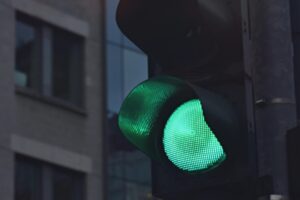Generative AI is revolutionizing the creative landscape, introducing unprecedented possibilities for digital art and marketing. It employs algorithms to autonomously generate original content, transforming how creators and brands operate. In the US, this technology is reshaping industries by streamlining creative processes and enabling innovative campaigns that were once unimaginable.
The Rise of Generative AI in Digital Art
Generative AI tools like DALL·E, Stable Diffusion, and MidJourney are empowering artists to push creative boundaries. These platforms generate high-quality images from text descriptions, drastically reducing production time. Digital artists now collaborate with AI as a creative partner, exploring new styles and concepts more efficiently.
AI can analyze thousands of art pieces to identify patterns and generate unique designs. This capability enables artists to explore uncharted artistic territories while preserving their unique voice. Additionally, artists can customize AI outputs, ensuring that the technology enhances rather than replaces human creativity.
Transforming Marketing Strategies with Generative AI
In marketing, generative AI is proving to be a game-changer. Brands in the US leverage this technology to create personalized content at scale, boosting engagement and conversion rates. AI-powered tools can craft compelling ad copy, social media posts, and even dynamic video content tailored to individual customer preferences.
One notable application is in visual content creation. AI tools can generate product mockups, logos, or campaign visuals with remarkable speed and precision. This streamlines marketing workflows, allowing teams to focus on strategy and ideation. Additionally, AI algorithms analyze consumer data to predict trends and optimize content strategies, ensuring campaigns resonate with target audiences.
Enhancing Accessibility and Diversity in Creation
Generative AI democratizes access to creative tools, enabling individuals without formal training to produce professional-quality art and content. This accessibility is fostering a more inclusive creative ecosystem in the US. Small businesses and independent creators can now compete with larger entities by leveraging AI-driven solutions to amplify their reach.
Moreover, AI helps address the lack of diversity in creative outputs. By training models on diverse datasets, generative AI can produce content that represents a wide range of perspectives and cultures. This capability is essential for brands aiming to connect with America’s diverse consumer base authentically.
Ethical Challenges and Opportunities
Despite its benefits, generative AI presents ethical dilemmas, particularly regarding originality and ownership. When AI generates content based on existing works, questions arise about intellectual property and authorship. Artists and brands must navigate these issues carefully to ensure fair recognition and compensation.
Furthermore, the risk of misuse, such as creating deepfakes or misleading content, underscores the need for regulatory frameworks. US policymakers and tech companies are exploring guidelines to ensure AI tools are used responsibly. Transparent disclosure of AI-generated content and ethical training data sourcing are vital steps toward mitigating misuse.
On the positive side, generative AI offers opportunities to tackle sustainability challenges. By reducing the need for physical prototypes and resources, it promotes eco-friendly practices in art and marketing. Brands that adopt AI-driven solutions can position themselves as leaders in sustainability, appealing to environmentally conscious consumers.
Also read: Precision Medicine Gets Smarter with AI Robotics
The Future of AI-Powered Creativity
Advancements in natural language processing and machine learning will enhance the realism and creativity of AI-generated outputs. US businesses and creators will benefit from faster production cycles and more innovative campaigns. Collaborations between humans and AI are likely to define the future of creativity. Artists and marketers will focus on ideation and storytelling while delegating repetitive tasks to AI. This synergy will result in more engaging and impactful content that resonates with audiences.







Add Comment